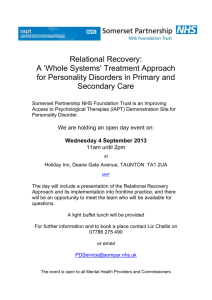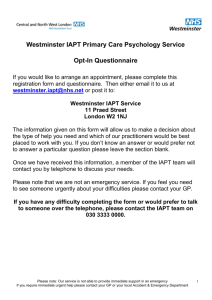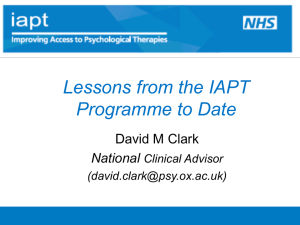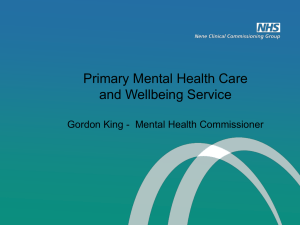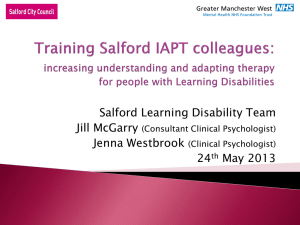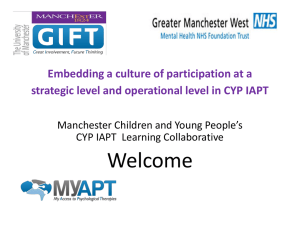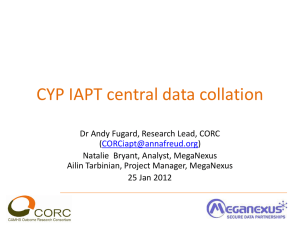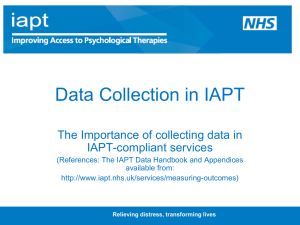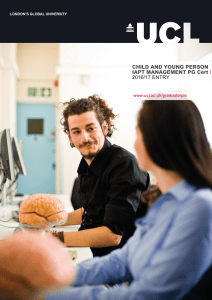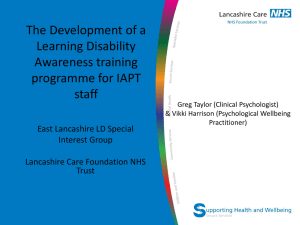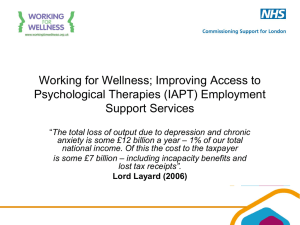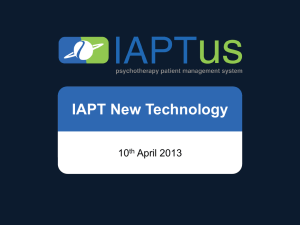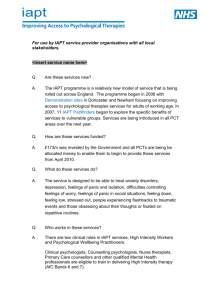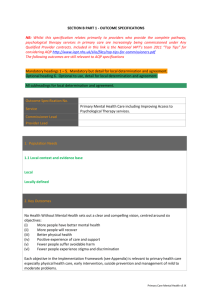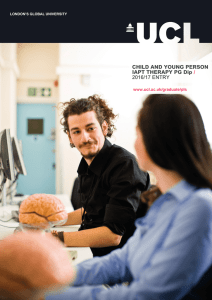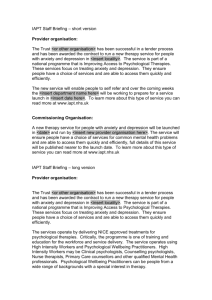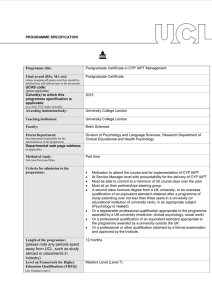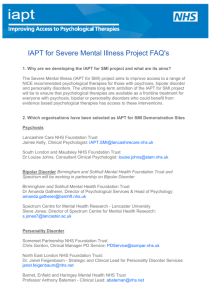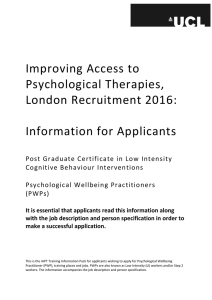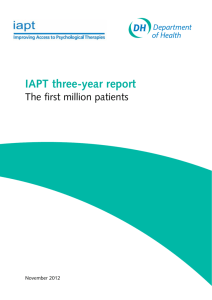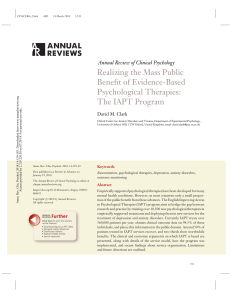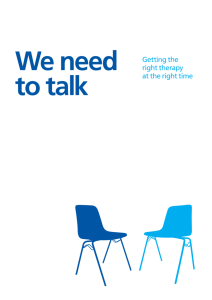CYP IAPT new sites press release July 13
advertisement
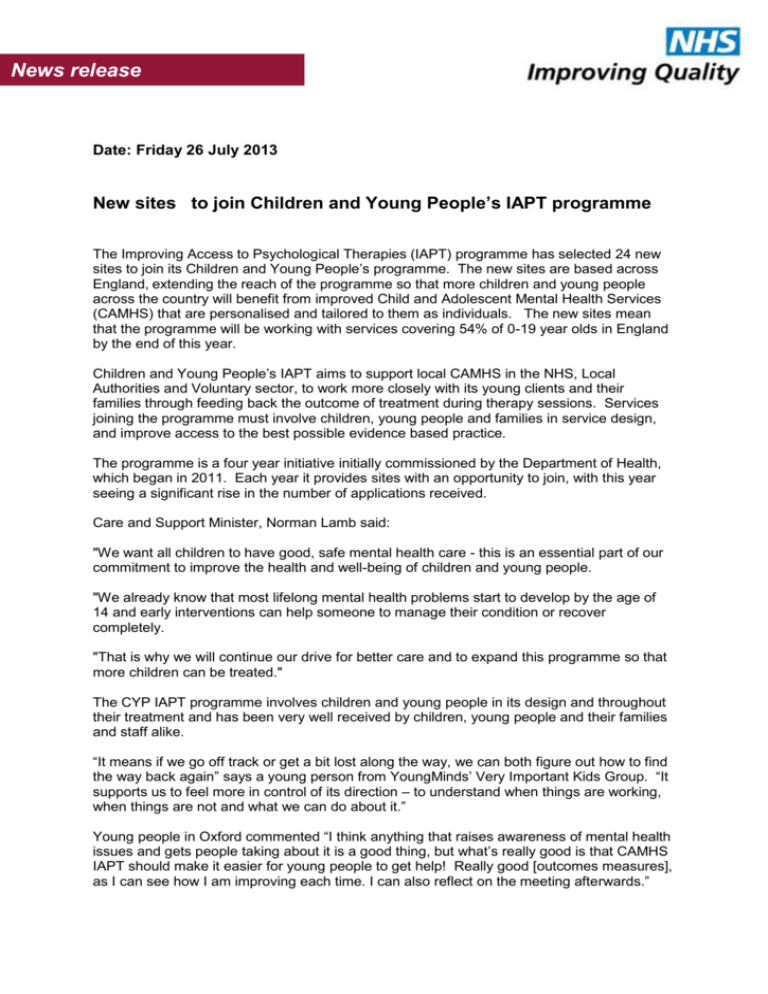
News release Date: Friday 26 July 2013 New sites to join Children and Young People’s IAPT programme The Improving Access to Psychological Therapies (IAPT) programme has selected 24 new sites to join its Children and Young People’s programme. The new sites are based across England, extending the reach of the programme so that more children and young people across the country will benefit from improved Child and Adolescent Mental Health Services (CAMHS) that are personalised and tailored to them as individuals. The new sites mean that the programme will be working with services covering 54% of 0-19 year olds in England by the end of this year. Children and Young People’s IAPT aims to support local CAMHS in the NHS, Local Authorities and Voluntary sector, to work more closely with its young clients and their families through feeding back the outcome of treatment during therapy sessions. Services joining the programme must involve children, young people and families in service design, and improve access to the best possible evidence based practice. The programme is a four year initiative initially commissioned by the Department of Health, which began in 2011. Each year it provides sites with an opportunity to join, with this year seeing a significant rise in the number of applications received. Care and Support Minister, Norman Lamb said: "We want all children to have good, safe mental health care - this is an essential part of our commitment to improve the health and well-being of children and young people. "We already know that most lifelong mental health problems start to develop by the age of 14 and early interventions can help someone to manage their condition or recover completely. "That is why we will continue our drive for better care and to expand this programme so that more children can be treated." The CYP IAPT programme involves children and young people in its design and throughout their treatment and has been very well received by children, young people and their families and staff alike. “It means if we go off track or get a bit lost along the way, we can both figure out how to find the way back again” says a young person from YoungMinds’ Very Important Kids Group. “It supports us to feel more in control of its direction – to understand when things are working, when things are not and what we can do about it.” Young people in Oxford commented “I think anything that raises awareness of mental health issues and gets people taking about it is a good thing, but what’s really good is that CAMHS IAPT should make it easier for young people to get help! Really good [outcomes measures], as I can see how I am improving each time. I can also reflect on the meeting afterwards.” Collaborative working is a fundamental part of the programme, with teams committed to working with children and young people locally, listening to their wishes and preferences. Sites that are already part of the programme support and mentor new sites. Services within the programme have reported improved outcomes and working towards clear, shared goals. Half of children and young people with long term mental health problems first experience symptoms before the age of 14 and three quarters of them before their mid-20s. Giving children and their families the right help through a broad range of support from the outset and through early and effective intervention when problems first appear can make a real difference to young lives. ENDS Notes to Editors: IAPT is hosted by NHS Improving Quality (NHS IQ). Established 1 April 2013, NHS IQ brings together a wealth of knowledge and experience gained from several previous legacy organisations, to provide improvement and change expertise to help improve health outcomes for people across the NHS in England. For further information and a list of the 24 new teams that were selected for the programme please contact Senior Communications Manager Yesret Bi on 07500 915519 or email yesret.bi@nhsiq.nhs.uk For further information about the CYP IAPT programme see www.iapt.nhs.uk For information about young people’s participation in IAPT see www.myapt.org.uk
